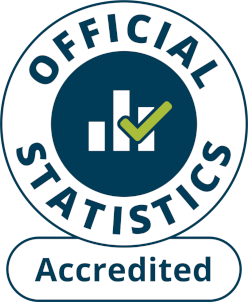Social housing lettings in England, April 2021 to March 2022
Statistics on new social housing lettings in England in 2021/22 by local authorities and private registered providers, covering tenancies and tenants.
Applies to England
Documents
Details
This release is part of the annual ‘Social housing lettings in England’ series, which has been badged as National Statistics and is the most robust source of data on new social lettings.
It covers new Social Rent, Affordable Rent and Intermediate Rent lets, for both General Needs and Supported Housing.
The 2021/22 release is split into two reports.
- ‘Tenancies’ focuses on the tenancies, rents, properties and stock ‘churn’ – how frequently social housing is relet.
- ‘Tenants’ focuses on the people living in new social housing lettings – where they lived previously, their route into social housing, how long tenants spent on waiting lists, and information about the tenants themselves.
Summary tables, technical notes, sub-national dashboard and a quality report are published alongside the reports.
Updates to this page
-
Duplicate data from historic years has been fixed across documents as well as other small fixes.
-
Warnings have been added to the tenancies report, tenants report, tenancies data tables, tenants data tables and the data quality data tables. The warning is around lettings numbers for 2010/11 and 2015/16. The data for these years will be amended following the 2022/23 release.
-
Following revisions to published LAHS waiting list data, the waiting list text and chart has been updated in the Tenancy report.
-
Minor format changes have been made to the Tenants report. Clarification has been made to the definition of rent burden to indicate that eligible service charges are included in the calculation.
-
A data quality issue was spotted in the calculation for the number of new lettings in 2021/22 that had fewer bedrooms than the bedroom standard recommended in the tenants report. This has now been corrected resulting in the figure changing from 5% to 2%.
-
Sub-national dashboard and corresponding guidance has been added.
-
First published.
